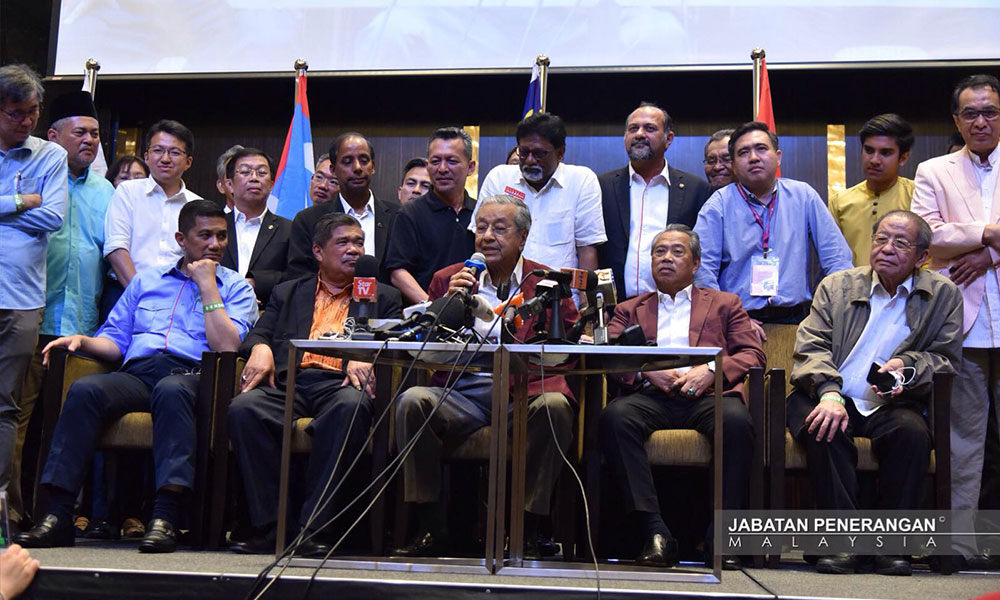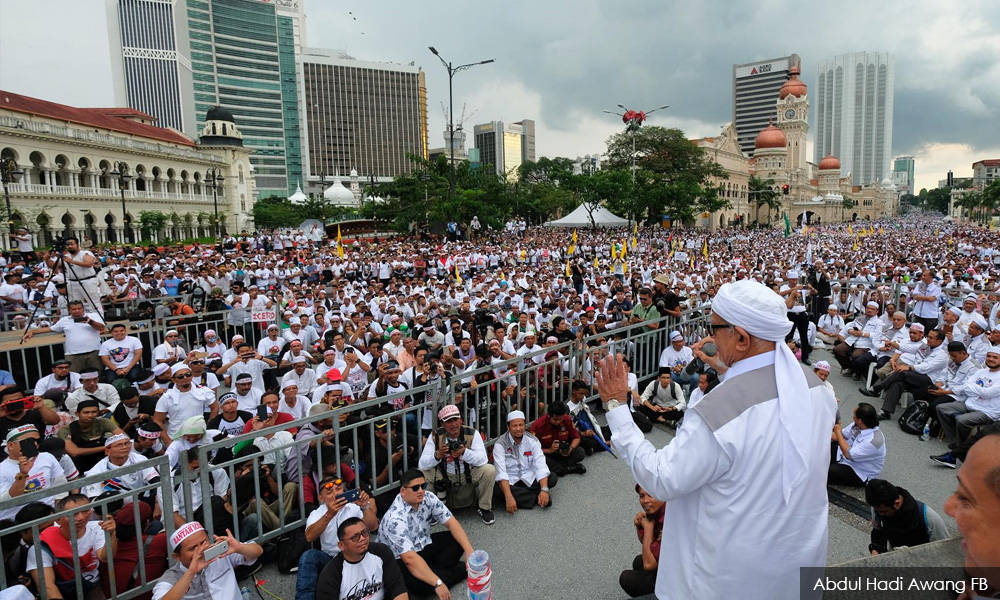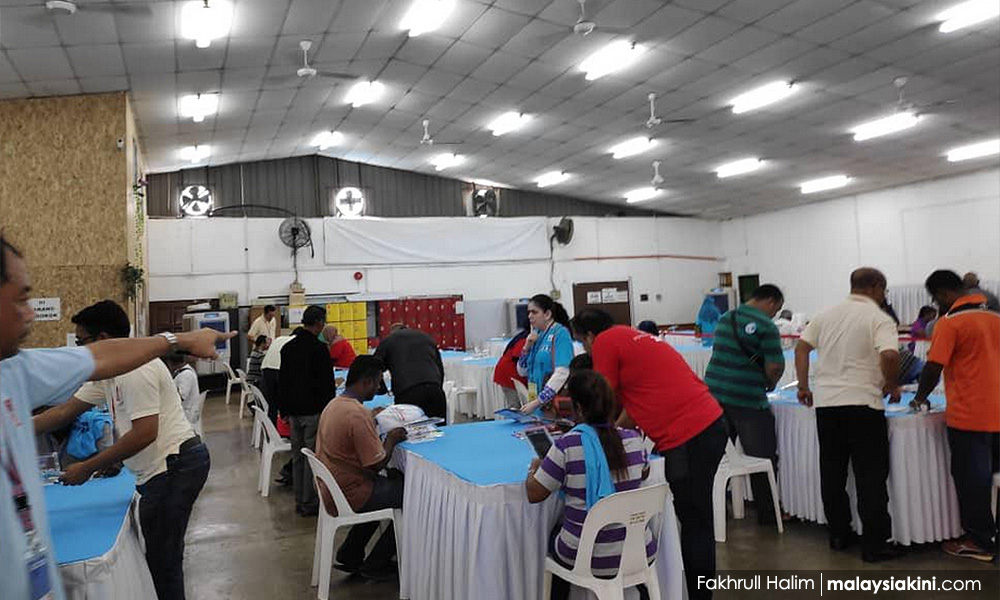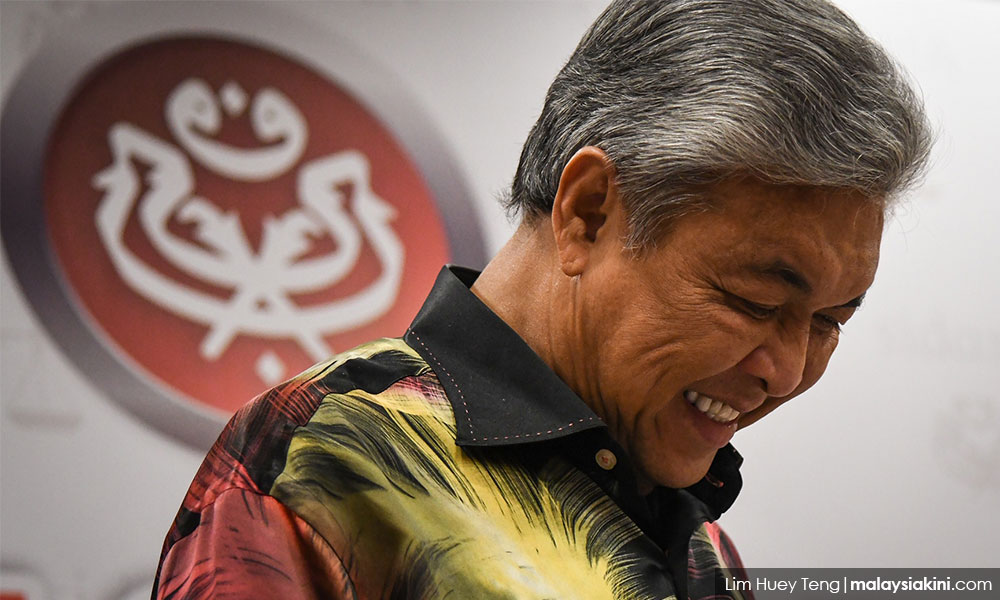
Malaysia’s year of embracing change has been both euphoric and disquieting. After the victory of Pakatan Harapan in May and the rapid formation of a new government, high expectations have been met by hard realities.
Dr Mahathir Mohamad’s return has brought to the fore many of the problems of his earlier tenure and simultaneously showcased the burdensome financial mismanagement of the Najib Abdul Razak era.
Not only is the new government facing serious domestic political challenges and a growing public perception that it is not delivering, but Mahathir has also returned to power in unfavourable global conditions, of which the uncertainty and slowdown of the world economy are arguably the most serious and foreshadowing a difficult year ahead.
As the year ends, it is fitting to reflect on both positive and negative developments and to recognise that, despite disappointments and persistent divisions, 2018 was indeed a year of hope and heroes.
Citizen empowerment and freedom
Foremost in this list are the ordinary Malaysians. From across the political spectrum, citizens went to the polls and took to the streets to express their aspirations.
Malaysia had a peaceful transition of government and despite real anxieties over increased race-based mobilisation, rallies and protests have largely remained peaceful.
A grave exception to this was the Seafield Sri Maha Mariamman Temple riot in late November, which led to the tragic loss of life of firefighter Muhammad Adib Mohd Kassim. He was an extraordinary hero; his bravery in service to fellow Malaysians is a reminder of the sacrifices that many on the frontline of safety make for others, irrespective of race, and the need for responsible responses to honour his memory.
In the sadness and outrage over the loss, one cannot ignore the calls for outreach to maintain the richness of Malaysia’s diverse social fabric. In fact, Malaysians have taken on more responsibility and are no longer as afraid to speak out.
This is palpable in everyday conversations, and in both social and mainstream media. Despite the constant political gossiping and obsession with who and why a person is with whom in photos, another important feature of the year has been the welcoming of the widening of political space.
The challenge has been that many of the discussions have been shallow, mono-dimensional and highly personalistic, effectively minimising meaningful debate of the real problems Malaysians are facing. Yet, even within this constant political storytelling, there is greater attention to policy problems, from drug use to unemployment.
It takes time to change patterns of behaviour, but more Malaysians are showing comfort with more political freedom and greater political sophistication in how they process information.
Messaging and macro successes
The Harapan government has encouraged dialogue. It has opened itself for criticism in an unprecedented way compared to BN governments, but at the same time, its public engagement is episodic and reactive. Too many times over the year, it has appeared unprepared and defensive – aka old opposition mode.
The Harapan government faces a challenge of communication, as inconsistencies and conflicts in messages have not reinforced confidence and clarity in its direction of governance. A more effective media strategy and greater collaboration on messaging can go a long way to actualise the hopes all Malaysians have for their country.

While the year ends with intensive discussion of race in the wake of the December Icerd rally (photo) and the Harapan government’s U-turn on promised greater equal representation (at least symbolically in an international agreement), this year has been one in which substantive hopes have been actualised.
Among the most important successes to date of the Harapan government are greater inclusiveness (for youth, women and minorities); a strengthening of the checks and balances (with greater independence for the judiciary; a stronger Parliament, a reduction in powers of the prime minister and freer media); tougher (although uneven) enforcement for corruption to include not only perceived abuses by former elected officials but also that alleged of bureaucrats; increased professionalisation of appointments in the civil service (notably in the Election Commission and the Attorney-General’s Chambers); an extensive forensic internal government review of contracts; spending and institutional arrangements; and a return of pride for Malaysia on the international stage.
These accomplishments in less than eight months should not be underestimated and from a global perspective are indeed heroic. They reinforce the fact that hopes can yield results.
If Malaysia had followed the path of increased debt and mismanagement, the negative effects would be even more far-reaching for future generations.
However, it is important to note that many of these successes are not concrete for ordinary Malaysians, who are increasingly dissatisfied with the government's performance. Take heed that the critical memes on shoes speak to growing discontent, not just among opposition supporters but even within the Harapan political base.
Plans needed for the economy
Importantly, the economy has slowed in public perceptions.
While shaped by adverse international conditions and heavy inherited financial burdens, the choking of the domestic sector through the ending of the contracts to previously BN-favoured business allies and contraction of pump-priming has been a painful process and contributed to a slowdown.
International investors face unnecessary obstacles and uncertainty in the business climate, exacerbated by conflicted messaging and uneven competencies in different ministries.
Consumers have not seen a meaningful change in the cost of living and economic opportunities and this has spilt over into a cacophony of complaints.
There is no real sense of what are the plans for the economy and the steps that will move Malaysia towards greater and fairer prosperity. There is an urgent need for perceived achievements.
Cynicism is setting in, especially in how the government-linked-companies (GLCs) are being (mis)managed.
Old faces at the core have not offered new ideas and new arrangements to conform to the new conditions.
Elite-oriented patronage is not a solution for domestic growth and opens up the new government to the temptations of corruption.
The need for meaningful economic reform, outcomes and direction is pressing – as this poses a real threat to Malaysia’s future and democratic opening, post-May 9.
Destructive power struggle
Along with economic woes, the perceived move from cooperation to competition among political elites, most notably between Mahathir and Anwar Ibrahim, over national leadership has been destabilising.

PKR’s election – and both pre- and post-wrangling and petty positioning – has not instilled confidence that this party can govern effectively and carry out an election that respects fair processes.
Red-wearing Bersatu’s apparent embrace of tainted leaders from Umno has additionally upset an already delicate balance of relationships.
Harapan leaders have not learnt the lesson that conflicts should be kept inside the tent, nor fully appreciate that in this age of social media news (and conspiracies about that news) are the norm. The choice appears to be to position against each other, rather than to position for the people.
The dynamic provides considerable news fodder but does not appear properly functional. Before May, Harapan faced serious reservations about its ability to govern together and to date, these concerns have been heightened rather than dissipated.
The ongoing power struggle(s) are destructive as they have brought to the fore old "divide and rule" tactics and distracted leaders from doing the jobs they were elected to do – to govern.
In the contestation, there is little realisation that all the leaders are getting hurt. Making Mahathir into a "lame duck" undercuts the leader of a current prime minister and spreading rumours (with photos) serves to discredit future leaders – all leading to a spiral of fragmentation and distrust.
In the pattern of old Malaysia, today’s Malaysian leaders are seen still caught up in taking each other down and too focused on themselves (and positions).
Narrow new opposition
This pattern is evident in the opposition as well. The last six months have witnessed the collapse of Umno, with criminal charges levied against the former prime minister Najib and his close ally Ahmad Zahid Hamidi (photo), who recently stepped aside from the Umno presidency after being elected in a competitive fight in June.

The largely self-inflicted decimation of Umno reflects the selfish search for safe landings by its elites and a failure to engage in party reform. In less than a year, Umno has essentially passed the baton of national opposition leadership to the Islamic party PAS, which sings a low-pitched song focused on a narrow religious conservative agenda.
Its governance at state levels to date has been lacklustre. Both Umno and PAS have taken on a more confrontational racialised approach, one in which will essentially mean that they might dominate the national narrative but will not be able to assume the mantle of truly national leadership for Malaysia as a whole.
It is as short-sighted and corrosive as Harapan’s infighting. It has empowered resistance within the system and contributed to a worrying worsening of ethnic relations.
What then of hopes in this context? Are there heroes willing to buck the evolving negative patterns, to return to engage the sweet blossoms and promises of May?
The hard reality is that transitions are not easy, and given decades of decay of institutions, social trust and narrow-taught mindsets, expectations need to be recalibrated.
At the same time, politicians need to be reminded that they were elected to serve the people and the country, not themselves, and more that are expected of them, not least of which is a clear plan from the new government for succession and policy priorities.
If anything, however, 2018 has shown the capacity of elites to learn, regroup and re-engage. The year also has illustrated that breaks with the past are possible and given social pressures for better governance and deliverables from an increasingly sophisticated citizen electorate, the power of ordinary Malaysians – who want and deserve more than they have been given – is real.
Though dented, hope remains alive as the pressures of continued heroism extend into the new year.
BRIDGET WELSH is an associate professor of political science at John Cabot University in Rome. She also continues to be a senior associate research fellow at the National Taiwan University's Center for East Asia Democratic Studies and The Habibie Center, as well as a university fellow of Charles Darwin University. Her latest book (with co-author Greg Lopez) is titled Regime Resilience in Malaysia and Singapore. She can be reached at bridgetwelsh1@gmail.com. -Mkini



No comments:
Post a Comment
Note: Only a member of this blog may post a comment.